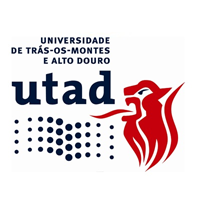Descrição
Idade Mínima: 0
Idade Máxima: 0
Situação:
Habilitações Mínimas:
Habilitações Específicas:
Considerem-se alguns objetivos gerais fundamentais apresentados para o nível A1:
“[O aluno] é capaz de resolver as dificuldades de comunicação, com recurso a várias estratégias de comunicação.”
“[O aluno] é capaz de dominar o vocabulário básico e frequente nos domínios educativo e privado, com recurso a estratégias de comunicação, se necessário.”
Consider some key general objectives presented for level A1:
“[The student] is able to solve communication difficulties using various communication strategies.”
“[The student] is able to master basic and frequent vocabulary in the educational and private domains, using communication strategies if necessary.”
n summary, the main themes to be approached are: Greeting other people, answering greetings/saying goodbye, introducing oneself, family, nationality, calendar, weather, the time, shopping and making telephone calls, among others). A stimulating part of the education process will be the presentation of vocabulary used in typical everyday communication (internet chats, e-mails).
Sociolinguistic, Cultural and Communicational Competences:
Advise and give instructions
Agree / disagree
Apologize
Asking and telling the time (hours, minutes, etc.)
Asking prices
Book a hotel room
Compare countries and habits
Describe locations and people
Expressing preferences
Give information of personal description
Go shopping
Going to the doctor
Greeting
Invite/accept / deny
Localize
Making plans
Present himself/herself
Request in the cafe/restaurant and in other shops
Request information about places
Request items in shops
Saying goodbye
Speak of current events
Speak of free time activities
Speak of hobbies and vacations
Suggest
Talking about actions of everyday life
Talking about the weather
Write a letter
Lexical Areas / Vocabulary:
Actions of day-to-day
Address
Adjectives
At the Doctor
At the Post Office / in Bank / in Pharmacy
Cardinal Numbers (up to 20; up to 100; 101-1000)
Clothing
Colors
Countries / Cities / Towns / villages
Days of the week and months
Food and beverages
Furniture
Hobbies
Holiday Season
Holidays, leisure and hobbies
Hotel
Hours
House
Invitations
Jobs
Meals
Means of transport
Medical specialties and symptoms
Name
Nationalities
On the phone
Ordinal numbers
Parts of the day
Physical and psychological descriptions
Prices
Relationship Status
School
Seasons
The family
The menu
Weather
Grammar:
Phonetics: alphabet, vowels and consonants, diphthongs and other specific sounds of the Portuguese language
“Estar a” + Infinitive
Adjectives
Affirmative/negative / interrogative sentences
Comparatives and Superlatives
Definite and Indefinite articles
Demonstrative pronouns: “isto”/ “isso”/ “aquilo”
Expression “Como está? / Como estás?”
Expressions of time: “há”, “desde”, “sempre”, “nunca”, “às vezes”
Imperative
Indirect object pronouns
Interrogative pronouns and adverbs
Irregular verbs (present tense): “ser”, “estar”, “ter”, “haver”, “ir”,“poder”, “querer”, “saber”, “ver”, “ler”, “vir”, “fazer”, “dizer”, “trazer”, “sair”, “cair”, “pedir”, “ouvir”, “dormir”, “pôr”, “dar” and “doer”
Modal verbs: “Precisar de”, “ter de”, “dever”…
Personal pronouns – subject pronouns
Polite expressions: “Podia…?”, “Queria…”
Possessives
Preposition “com” + personal pronoun
Prepositional Expressions of place
Prepositions of time
Prepositions: “de”, “em”, “com”, “para”, “a”, “por”
Reflexive Verbs
Regular verbs (present tense) in -ar, -er and -ir
Verb “ir” + Infinitive
CONDIÇÕES DE FREQUÊNCIA: Os alunos devem frequentar no mínimo 75% das aulas e obter nota mínima de 10 valores, para obter no final do curso um certificado de competências.
A avaliação será realizada de acordo com o disposto no Quadro Europeu Comum de Referência (QECR) para o nível A1 e no Regulamento Pedagógico da UTAD, integrando as seguintes componentes:
– Avaliação formativa (semanal) para aferir e monitorizar a progressão gradual dos alunos.
– Avaliação sumativa periódica (formal), que inclui as competências acima enumeradas e pode assumir a forma de testes (orais e escritos) e registos diversos, entre outros
fatores considerados pertinentes;
– Questionários de autoavaliação (durante as aulas)
ATTENDANCE CONDITIONS: Students must attend at least 75% of the classes and obtain a minimum grade of 10, to obtain a certificate of competence at the end of the course.
The evaluation will be carried out in accordance with the provisions of the Common European Framework of Reference (CEFR) for level A1 and the UTAD Pedagogical Regulation, integrating the following components:
– Formative assessment (weekly) to assess and monitor the gradual progression of students.
– Periodic (formal) summative assessment, which includes the skills listed above and may take the form of tests (oral and written) and various records, among other factors considered relevant;
– Self-assessment questionnaires (during classes).
Any omission of the evaluation elements are at the discretion of the Course Teacher, who will carry them out whenever the syllabus or the group of students with whom he or she is working justifies it.
Os elementos avaliativos eventualmente omissos ficam ao critério do Docente do Curso, que os levará a cabo sempre que os conteúdos programáticos ou o conjunto de alunos com que estiver a trabalhar o justificar.
Certificado de Avaliação
Certificate of Assessment




